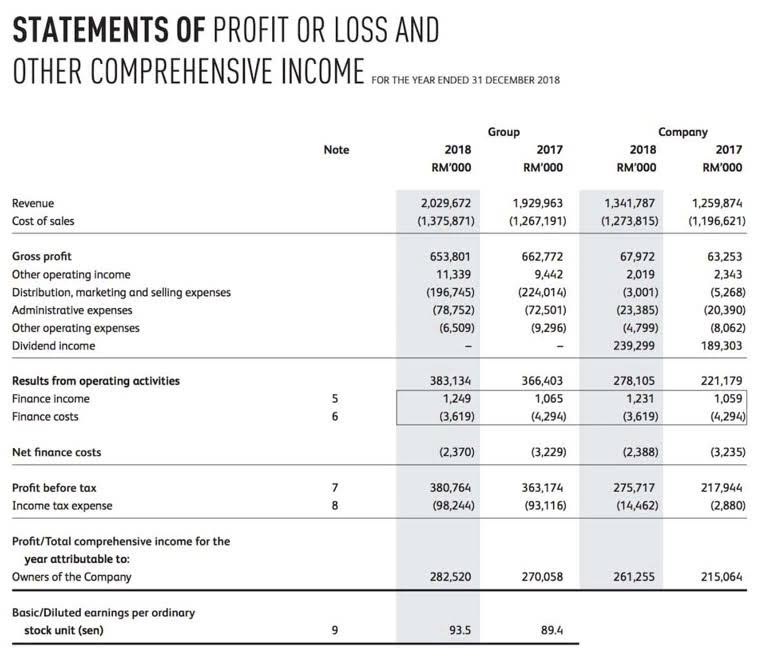
This principle dictates that revenue should only be recognized when it is earned and realizable, regardless of when the cash is actually received. It’s a concept that hinges on the transfer of risks and rewards, completion of the delivery or performance, and the establishment of a realization principle accounting seller’s right to payment. Income realization is a cornerstone concept in accounting, pivotal to the integrity of financial reporting. The principle dictates that income should only be recognized when it is earned and realizable, which seems straightforward in theory.
Practical Applications in Business Accounting
- They scrutinize transactions to confirm that the risks and rewards have been transferred, the sales price is fixed or determinable, and collectability is reasonably assured.
- Understanding revenue recognition criteria and its importance can help investors and other stakeholders make informed decisions about a business’s financial health.
- This typically means that the good or service has been delivered to the customer and they now have control over it.
- Implementing a robust revenue recognition policy that is aligned with accounting standards and industry best practices.
By dictating the timing of revenue recognition, it provides a framework that promotes consistency, comparability, and reliability in financial reporting, which is essential for all stakeholders involved. While the Realization Principle provides a clear-cut rule for revenue recognition, Accrual Accounting offers a more comprehensive view of a company’s financial health by recognizing revenue and expenses in the period they occur. Businesses must carefully consider which method best reflects their operations and complies with regulatory requirements, as the choice will influence financial reporting and potentially business decisions. The Realization Principle dictates that revenue should only be recognized when it is earned and realizable.
- For example, an investor examining a company that follows this principle can be more confident that the reported income is reflective of actual sales and not just cash inflows.
- If a company’s revenue reporting is inaccurate, stakeholders may lose confidence in the company’s financial performance and the accuracy of its financial statements.
- By dictating the timing of revenue recognition, it provides a framework that promotes consistency, comparability, and reliability in financial reporting, which is essential for all stakeholders involved.
- It ensures that revenue is recorded not just when cash changes hands, but when it is truly earned, reflecting the economic reality of business transactions.
- For example, attorneys charge their clients in billable hours and present the invoice after work is completed.
The Criteria for Revenue Recognition

It provides a consistent and prudent approach to income recognition, which is essential for various stakeholders, including investors, management, auditors, and tax authorities. By adhering to this principle, companies can maintain the integrity of their financial reporting and uphold trust among those who rely on their financial statements. Timing is a critical factor in revenue recognition, as it can significantly impact a company’s financial statements and overall financial health. Recognizing revenue too early can inflate earnings and mislead stakeholders, while recognizing it too late can conceal a company’s true performance. The realization principle mandates that revenue should only be recognized when it is earned and realizable, ensuring that the financial statements present a fair and accurate picture of the company’s economic activities. This approach contrasts with cash-basis accounting, where revenue is recorded only when cash is received, and expenses are recorded when cash is paid.
- In case of the rendering of services, revenue is recognized on the basis of stage of completion of the services specified in the contract.
- Revenue recognition and revenue realization are both important concepts in accounting and finance.
- The realization principle mandates that revenue should only be recognized when it is earned and realizable, which means the services have been rendered or goods delivered, and there is a reasonable certainty of payment.
- Accrued revenue is revenue that has been earned (recognized) but not yet received (realized).
- To illustrate the Realization Principle with an example, consider a software company that enters into a contract to deliver a custom software solution.
- The concept of income realization in accounting is pivotal as it dictates when revenue is recognized and thus, when it becomes measurable and reliable enough to be reflected in financial statements.
Realization Concept (Revenue Recognition Principle)
From a legal standpoint, the transfer of risks and rewards from seller to buyer is also a key consideration. Motors PLC delivers the cars to the respective customers within 30 days upon which it receives the remaining 80% of the list price. FundsNet requires Contributors, Writers and Authors to use Primary Sources to source and cite their work. These Sources include White Papers, Government Information & Data, Original Reporting and Interviews from Industry Experts. Learn more about the standards we follow in producing Accurate, Unbiased and Researched Content in our editorial policy.
- They examine contracts, delivery documents, and customer confirmations to verify that revenue recognition criteria are met.
- At this point, the entity is generally entitled to receive the revenue because the value of goods and services sold to the buyer can be objectively measured and the earning process is completed.
- Revenue realization typically occurs when payment for goods or services is received, rather than when revenue is recognized in financial statements.
- Conversely, management may favor a more aggressive recognition of income to paint a rosier picture of profitability.
- The realization concept is that the revenue is recognized and recorded in the period in which they are realized; similarly to accrual basis accounting.
- It is referred to as “realizable” when goods or services are provided in exchange for a noncash asset that is readily convertible into cash without incurring any additional costs.
- To illustrate, let’s take the example of a publishing company that receives an advance for a book yet to be published.
Revenue Recognition: Understanding the Realization Concept in Accounting

To illustrate these points, consider a construction company working on a multi-year project. Under the Realization Principle, revenue might trial balance only be recognized upon project completion when the client takes possession. However, with Accrual Accounting, the company could recognize revenue progressively, based on the percentage of the project completed each year, aligning revenue with the work performed and expenses incurred during the period. In another instance, a construction company working on a large project may recognize revenue over time, as it completes certain milestones, rather than waiting until the entire project is finished.

Allocation of transaction price to performance obligations

While they are closely related, there are nuanced differences between the two that are crucial for accurate financial reporting. International Financial Reporting Standards (IFRS), which are used in over 140 countries, also incorporate the realization principle but with a slightly different approach. IFRS focuses on the transfer of control rather than the transfer of risks and rewards, which is a key aspect https://www.bookstime.com/articles/saas-fractional-cfo under GAAP. This means that under IFRS, revenue is recognized when the customer gains control of the goods or services, which may occur at a different point in time compared to GAAP.